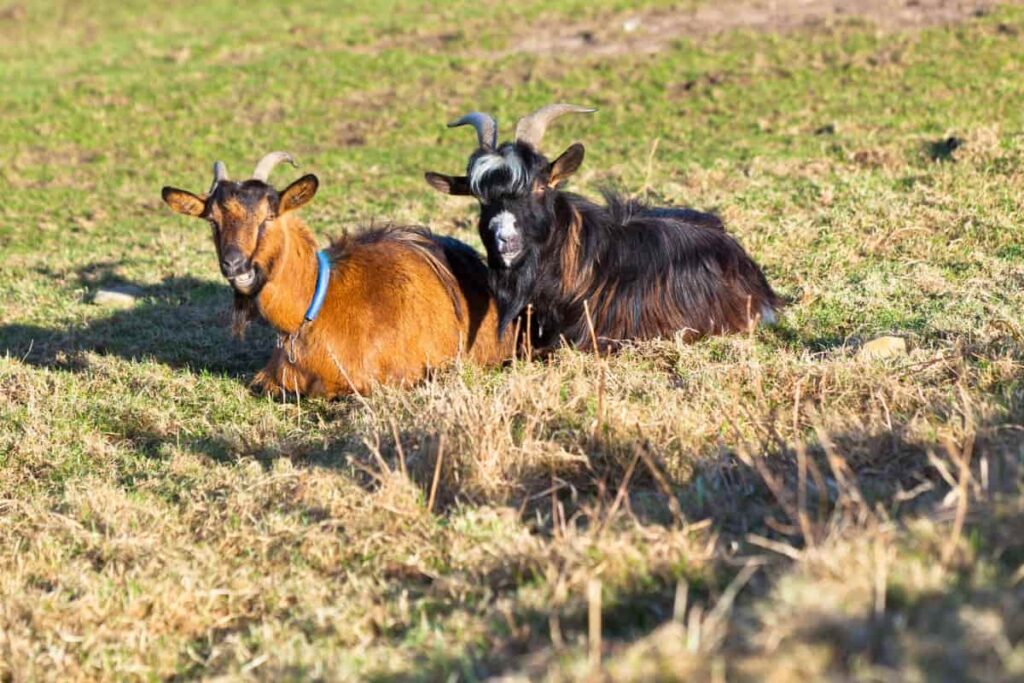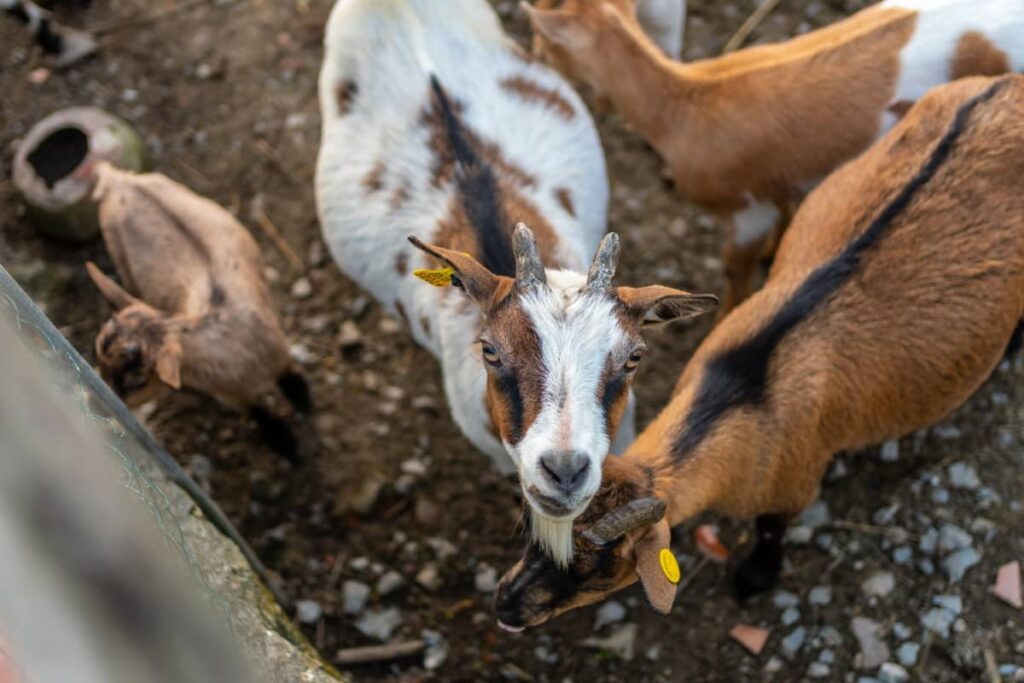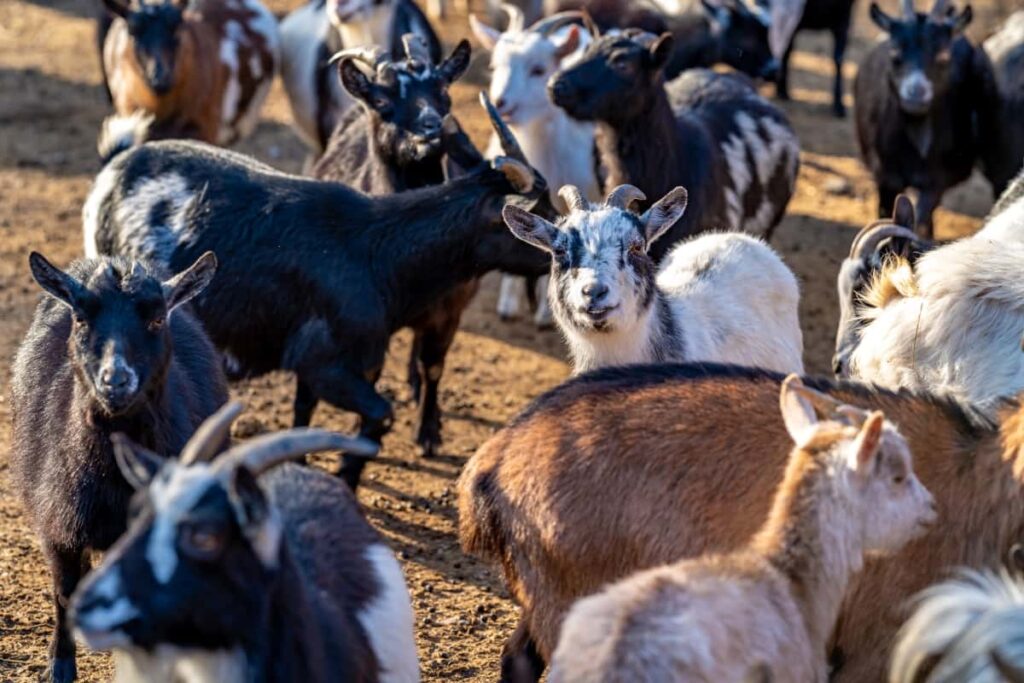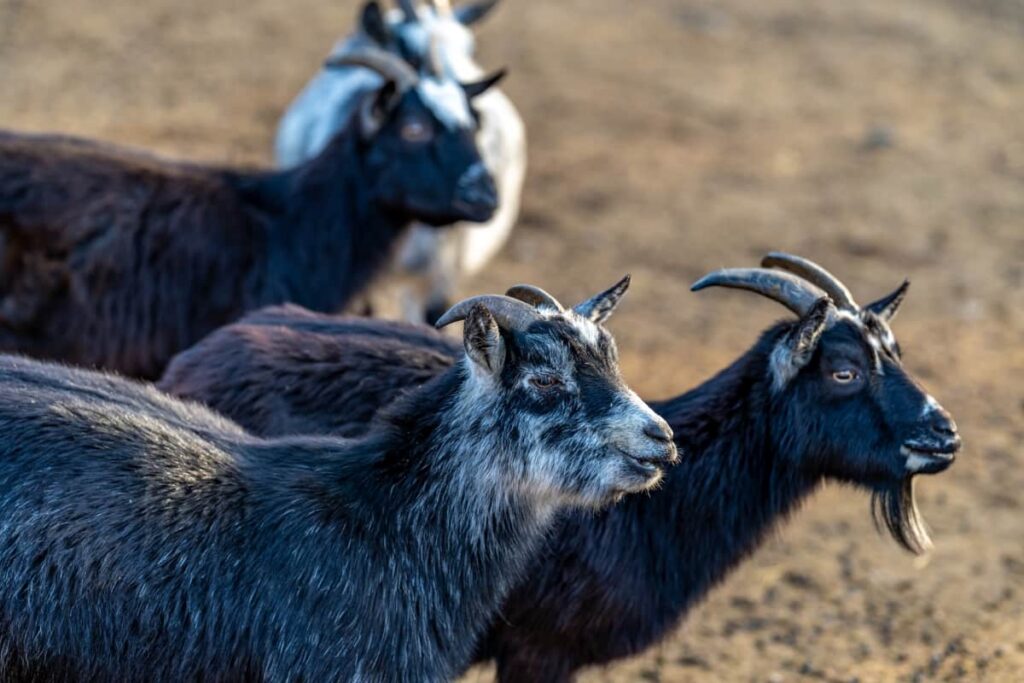Myotonic goats, also known as “fainting goats” and “Tennessee Fainting Goats,” unique breed of goats known for their distinctive genetic condition called myotonia. This condition causes their muscles to temporarily lock up or stiffen when they are startled or excited, leading to a temporary collapse or “fainting” episode.

While this condition may seem unusual, it is not harmful to the goats and is actually a characteristic that sets them apart from other goat breeds. In this ultimate guide, we will explore various aspects of raising Myotonic goats, including their history, physical characteristics, behavior, health, breeding, diet, housing, and essential care and maintenance tips.
History and Origin
The history of Myotonic goats traces back to the 19th century in Tennessee, USA. It is believed that the breed originated from a genetic mutation that occurred in a population of goats in the region. This mutation led to the development of myotonia, which was then selectively bred to preserve this unique trait. Over time, Myotonic goats gained popularity not only for their distinctive condition but also for their hardiness, adaptability, and docile nature.
Physical Characteristics
Myotonic goats are medium-sized animals with sturdy build, muscular body, and compact frame. The breed comes in colors and patterns, including solid colors, black and white, and various combinations of spots and markings. They have a short, dense coat that provides insulation against harsh weather conditions. Myotonic goats also have a distinctive facial expression, with a wide forehead and expressive eyes.
Behavior and Temperament
Myotonic goats are known for their calm and gentle temperament. They are generally docile and friendly, making them suitable for both small-scale and large-scale farming operations. However, due to their myotonia, they may appear more reserved and cautious compared to other goat breeds. When startled or excited, their muscles may briefly lock up, causing them to “faint” or collapse. This behavior is not harmful to the goats and is simply a temporary response to stimuli.
Health and Lifespan
Myotonic goats are generally healthy and hardy animals. They are resistant to common goat diseases and parasites. However, like all livestock, they still require proper care and management to maintain their health. Regular veterinary check-ups, vaccinations, and deworming are essential to ensure their well-being. With proper care, Myotonic goats can live an average lifespan of 10 to 12 years.
In case you missed it: Unlock the Secrets of Rove Goat: Discover Management Practices

Breeding and Genetics
Breeding myotonic goats necessitates meticulous examination of genetic factors to preserve the breed’s unique characteristics. Responsible breeding entails refraining from inbreeding and instead focusing on the selection of breeding couples that exhibit complementary traits in terms of conformation, temperament, and myotonia. To guarantee effective breeding programs and healthy progeny, it is recommended to obtain help from expert breeders or veterinarians.
Diet and Nutrition
Myotonic goats have similar dietary requirements to other goat breeds. They are primarily foragers and graze on a variety of vegetation. Access to quality pasture with diverse products is essential for their nutrition. In addition to grazing, they can be supplemented with hay, grains, minerals, and fresh water. To maintain their health, it is important to monitor their diet and ensure they receive a balanced and appropriate feed.
Housing and Fencing
When it comes to housing, Myotonic goats require adequate shelter to protect from extreme weather conditions and predators. A well-ventilated barn or shed with proper bedding is essential. Fencing should be secure and sturdy to prevent escapes and protect them from potential predators. It should be at least 4 to 5 feet tall and constructed with materials that goats cannot easily climb or push through.
In case you missed it: Ultimate Guide to Malwa Goat: Explore from Origin to Management Practices

Care and Maintenance
The health and well-being of Myotonic goats are contingent upon the implementation of appropriate care and maintenance practices. Regular grooming, which encompasses hoof trimming, is necessary in order to mitigate foot-related complications. Regular immunizations, deworming procedures, and annual veterinary examinations are crucial in addressing any latent health issues. Ensuring that individuals are provided with sufficient physical activity and cognitive stimulation is crucial for their holistic well.
Raising Tips
- Make sure the shelter is safe and comfortable, with enough air flow and bedding.
- Make sure that everyone always has access to clean, fresh water.
- Give them a healthy meal with minerals, hay, grazing, and grains.
- Trim the feet regularly and keep an eye out for any signs of problems with the hooves.
- Follow the plan for vaccinations and deworming that your vet suggests.
- Keep a close eye on their health and habits, and if you need to, get help from a vet.
- Give people a lot of room and chances to exercise and think critically.
- Responsible breeding is important to keep the breed’s unique traits and genetic variety.
Explanation of Health Considerations for Myotonic Goats
Myotonia-related issues: Myotonic goats may experience muscle stiffness and temporary paralysis due to myotonia. While this condition is not harmful, it can make them more susceptible to injuries or accidents. Providing a safe, secure environment with proper fencing is essential to prevent any harm.
Parasite control: Like all goats, Myotonic goats are prone to internal and external parasites. Regular deworming and implementing a parasite control program are crucial to maintain their health. Consult doctor for effective parasite management plan.
Proper nutrition: Providing a balanced diet with adequate nutrition for health and well-being of Myotonic goats. Ensure they have access to high-quality forage, clean water, and appropriate mineral and vitamin supplementation.
Routine veterinary care: Regular veterinary check-ups, vaccinations, and hoof trimming are important for maintaining the health of Myotonic goats. Consult with a veterinarian with goat care to establish a proper healthcare routine.
In case you missed it: Ultimate Guide to Payoya Goat: Raising, Breeding, Milk Yield, Diet and Care

The ultimate guide to Myotonic goats equips enthusiasts with comprehensive knowledge of raising these unique animals. From understanding their distinctive characteristics to implementing effective care practices, this guide serves as a resource for anyone looking to embark on a rewarding journey into the world of Myotonic goat husbandry.
Note: The images presented in this post are intended solely for representation purposes. The images are meant to serve as visual aids and should not be relied upon as accurate representations of their real-life counterparts.
- Types of Grass Growing for Goat Farm
- How to Train Goats for Milking: A Beginners Guide
- Goat Milking Practices and Equipment: A Beginner’s Guide
- Goat Farming for Fiber: Producing Mohair and Cashmere
- Maximizing Goat Milk Production: Tips for Dairy Goat Farmers
- Goat Farming as a Family Business: Strategies for Success
- Profitable Kenya Goat Breeds for Commercial Dairy and Meat Business
- Unlock the Secrets of Oberhasli Goat: Discover Raising and Management Practices
- Ultimate Guide to Myotonic Goats: Explore Profile to Raising